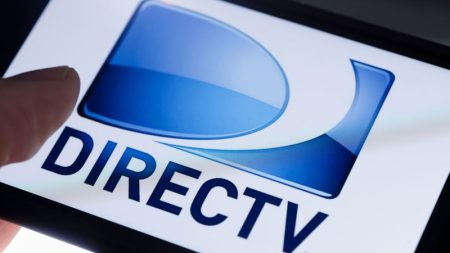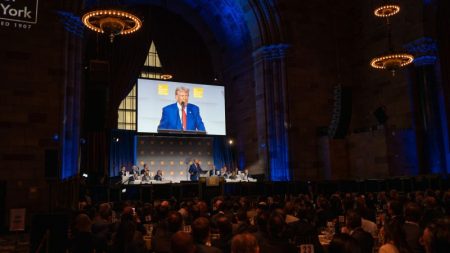Unlock the Editor’s Digest for free
Roula Khalaf, Editor of the FT, selects her favourite stories in this weekly newsletter.
Smith & Nephew shareholders have been urged to vote against an “excessive” pay rise of almost 30 per cent for the US-based boss of the FTSE 100 industrial group, the latest salvo in the battle by international companies listed in London to boost executive pay.
Under Smith & Nephew’s proposals, Texas-based chief executive Deepak Nath would be paid up to $11.79mn next year if all targets were met, a 28.9 per cent increase on his current maximum package of $9.15mn. The rise is part of a new executive pay policy that the company, which has had four CEOs in five years, has asked investors to back in an effort to reduce turnover in its top ranks.
Institutional Shareholder Services, a proxy adviser, has recommended shareholders reject the plan at next month’s annual meeting, calling it “excessive”.
In an unusual move, Smith & Nephew is seeking to increase the pay of Nath but not its finance boss, who works from the UK, reflecting higher pay packages on offer from American rivals. The company employs 18,000 people in about 100 countries.
ISS said it had “material concerns” about both the size of the increase and the structure of the new policy, which would hand US-based executives more shares in the company, irrespective of their performance. ISS added that “the argument for some adjustments for US-based executives has been strongly made by the company and is understood, and some changes could be justified”.
Meanwhile, Glass Lewis, another large proxy adviser, backed the remuneration policy despite “reservations”. Smith & Nephew had given a “compelling rationale” for paying more to its US-based leaders, Glass Lewis said.
The split in approach between the proxies underlines the differing views in the UK market over the need for international businesses to pay top executives more to compete with US-based rivals.
Companies including the London Stock Exchange Group and AstraZeneca are proposing pay increases for their bosses against a backdrop of concerns about the UK’s international competitiveness. Several companies with large North American operations, including betting group Flutter and building materials group CRH, have decided to quit the FTSE 100 for a primary listing in the US.
LSEG is preparing for a showdown with shareholders at its annual meeting later this month over a pay package for its chief executive David Schwimmer that is benchmarked against big US data groups such as S&P Global, rather than UK businesses.
The group is seeking shareholder approval to raise his pay to about
£11mn from £6.25mn, an increase of 76 per cent. Here too, ISS and Glass Lewis differ in their advice.
ISS is recommending that investors vote in favour of LSEG’s policy. But Glass Lewis believes “the increase is excessive”. It said that while it recognises the LSEG’s “global footprint and associated pay concerns”, the company has not “sufficiently rationalised an un-phased increase of this magnitude”.
In its annual report, Smith & Nephew said it had engaged on its executive remuneration proposals with 52 shareholders comprising two-thirds of its share capital and had received “support and positive feedback from the majority”.
The company declined to comment on ISS’s advice.
Smith & Nephew chair Rupert Soames told the Financial Times last month that the UK’s “current position on pay is not actually sustainable”.
The company’s proposal “is a sensible and pragmatic way of handling an issue where companies listed in London need to be able to recruit talent from markets around the world and those markets have different practices”, said Soames, who is also president of the CBI business lobby group in the UK.
Former chief executive Namal Nawana quit in 2019 after 18 months in the job because the company would not meet his pay demands.
Nath was paid $4.7mn in the last financial year, well below the maximum allocation. The proposed package includes a new restricted share plan worth 125 per cent of salary, vesting over three years. His maximum award under the company’s long-term incentive plan, which is linked to performance, would rise from 275 per cent to 300 per cent of base pay.
Read the full article here



